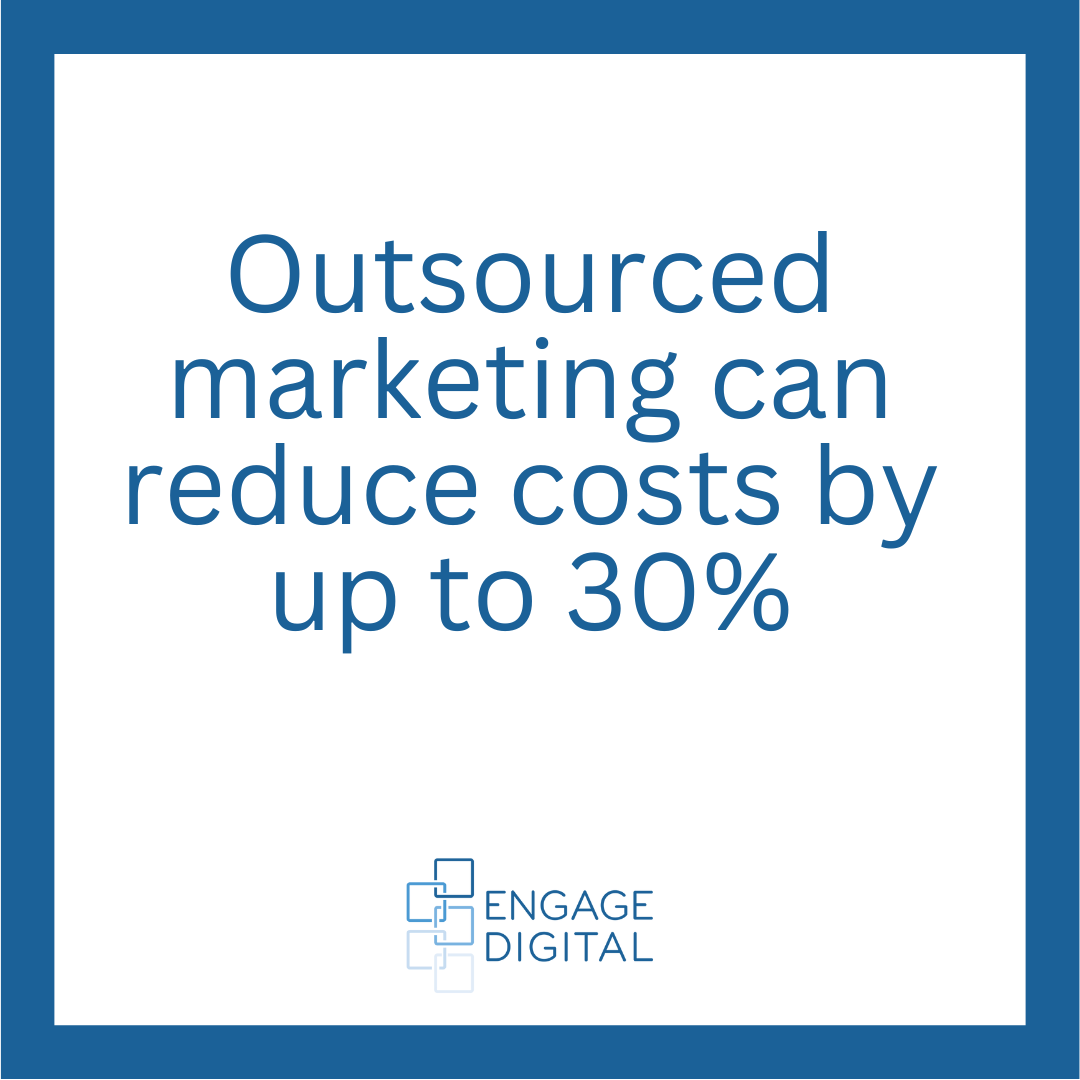When economic downturns hit, businesses face challenging decisions. With fears of revenues declining and consumer spending shrinking, the instinct may be to slash marketing budgets and tighten the belt. However, this can be a missed opportunity to strengthen your brand and market presence. Embracing a strategy that involves increasing marketing budgets can prove beneficial in the long run.
The Benefits of Increasing Marketing Spend
Counterintuitively, investing more in marketing during tough economic times can yield significant advantages. Research indicates that companies that maintain or increase their marketing budgets during recessions tend to outperform their competitors. A study highlighted by Harvard Business Review revealed that businesses that increased their marketing expenditures during the 2008 recession achieved 256% higher sales growth post-recession compared to those that cut back. This evidence points to the value of remaining visible when others withdraw, potentially gaining market share and enhancing brand recognition.
Sustained marketing efforts during economic downturns can help businesses foster stronger relationships with existing customers while attracting new ones. You can build trust and loyalty during challenging times by effectively communicating your brand’s resilience and commitment to customer satisfaction. Enhanced visibility through targeted marketing ensures your brand stays top-of-mind and showcases your adaptability and innovation, positioning your business favorably for growth once the economy rebounds. This long-term mindset can yield significant returns as consumers increasingly choose brands they recognize and trust.
Outsourcing Marketing to Manage Costs
 While ramping up marketing efforts is essential, missing costs effectively are equally important. One solution is outsourcing marketing services, allowing businesses to tap into top-notch talent without the long-term commitment of hiring full-time employees. A survey by Deloitte found that outsourced marketing can reduce costs by up to 30%. This approach enhances efficiency while mitigating financial exposure in uncertain economic climates.
While ramping up marketing efforts is essential, missing costs effectively are equally important. One solution is outsourcing marketing services, allowing businesses to tap into top-notch talent without the long-term commitment of hiring full-time employees. A survey by Deloitte found that outsourced marketing can reduce costs by up to 30%. This approach enhances efficiency while mitigating financial exposure in uncertain economic climates.
In addition to cost savings, outsourcing provides access to a broader range of expertise and specialized skills, which can elevate marketing strategies. By collaborating with experienced professionals, businesses can implement advanced techniques that may not be feasible with an in-house team. Outsourcing also allows companies to scale their marketing efforts quickly in response to changing market conditions without the burden of overhead costs associated with full-time staff. This flexibility enables organizations to focus resources on core business areas while still achieving robust marketing results through expert support.
Leveraging Digital Marketing Channels
In times of economic strain, wisely investing your marketing budget is critical. Digital marketing presents numerous cost-effective opportunities for outreach and engagement. According to findings from the Digital Marketing Institute, businesses utilizing online platforms such as Google Ads and social media experience engagement rates that are 3-5 times higher than traditional marketing methods. Additionally, data-driven strategies can optimize every dollar spent, maximizing returns.
Digital marketing allows for precise targeting and segmentation of audiences, enabling businesses to tailor their messaging effectively. This level of personalization helps ensure that marketing efforts resonate with specific consumer interests and behaviors. With tools like Google Analytics, marketers can track campaign performance in real-time using strategies on the fly to improve efficacy. This agility is particularly beneficial during economic downturns, as it allows businesses to remain responsive to customer preferences and market dynamics, ensuring that their marketing efforts are both relevant and impactful.
The Importance of Customer Loyalty
During economic downturns, retaining existing customers becomes vital. Engaging with your current clientele is generally more cost-effective than acquiring new ones. A report by Bain & Company highlights that improving customer retention rates by just 5% can lead to 25-95% profit increases. By focusing on personalized experiences and meaningful interactions, businesses can nurture customer loyalty through targeted marketing efforts.
Additionally, loyal customers often become brand advocates, promoting your business through word-of-mouth and referrals, which are invaluable during tough economic times. Utilizing loyalty programs and exclusive offers can incentivize repeat purchases and deepen customer relationships. Companies can create a sense of community and loyalty by actively listening to customer feedback and adapting services based on their needs. Ultimately, prioritizing customer loyalty enhances retention and positions businesses for sustainable growth as the economy recovers.
The Role of High-Quality Content
In today’s landscape, quality content is an invaluable marketing tool. The Content Marketing Institute found that 72% of marketers believe content marketing significantly boosts engagement and lead generation. By crafting compelling stories about how your business navigates economic challenges, you can build trust and affinity with your audience—essential elements for fostering customer loyalty.
High-quality content enhances SEO efforts, helping your business rank higher in search engine results and attracting organic traffic. This visibility can be particularly beneficial during economic downturns when consumers actively seek reliable information and solutions. Businesses can position themselves as industry authorities by producing informative articles, engaging videos, and eye-catching infographics; this drives traffic and encourages potential customers to consider your brand as their trusted choice amidst uncertainty, ultimately converting interest into sales.
Utilizing Data and Analytics
Data is a cornerstone of effective marketing strategy, especially during budget constraints. Employing analytics to monitor customer behaviors and market trends allows for informed decision-making. Research from McKinsey & Company indicates that data-driven organizations are 23 times more likely to acquire customers and 19 times more likely to be profitable. This emphasizes the necessity of investing in data analytics to ensure robust marketing performance.
Additionally, data analytics enables businesses to segment their audience effectively, identifying distinct customer groups and tailoring marketing efforts to meet their unique needs. By understanding customer preferences and behaviors, companies can refine their messaging and optimize their campaigns for better engagement. Leveraging this targeted approach notices the effectiveness of marketing strategies but maximizes return on investment (ROI), making it an essential component of any successful marketing plan, particularly during economic downturns.
Harnessing Social Proof
Social proof, such as testimonials and case studies, is a powerful marketing asset. According to Nielsen, 92% of consumers trust earned media, including recommendations from friends and family, more than any other form of advertising. Encouraging satisfied customers to share their experiences builds credibility and serves as free advertising, enhancing overall marketing effectiveness.
Showcasing social proof on various platforms, such as websites and social media, can significantly influence potential customers’ decision-making. Highlighting success stories creates trust and validates your brand’s promise. This real-world endorsement can be especially important during economic downturns when consumers are more cautious about spending. By actively promoting social proof, businesses can differentiate themselves from competitors, foster loyalty, and ultimately drive sales by emphasizing the positive experiences of existing customers.
Staying Flexible and Adaptable
Economic downturns require businesses to be agile. Firms that can quickly adjust their business models tend to fare better. The pandemic demonstrated how businesses that embraced e-commerce saw substantial growth despite widespread challenges. By remaining adaptable and responsive to changing market conditions, businesses can better navigate economic challenges with an evolving marketing strategy.
In addition, maintaining flexibility allows organizations to experiment with new marketing channels and techniques without fearing long-term commitments. This open-mindedness fosters innovation and can lead to discovering more effective ways to engage customers. For instance, businesses may test different messaging strategies, explore emerging platforms, or refine their value propositions based on real-time customer feedback. Ultimately, a commitment to agility enhances resilience during economic downturns and positions companies for long-term success in a continuously evolving marketplace.
Key Takeaways for Businesses During Economic Downturns
- Increase Marketing Spend: Data supports the idea that businesses that maintain or increase their marketing budgets during recessions gain long-term sales advantages.
- Outsource Where Possible: Outsourcing marketing can provide access to expertise while minimizing financial risks.
- Invest in Digital Marketing: Digital channels offer high ROI and greater engagement, making them vital in economic downturns.
- Prioritize Customer Retention: Focusing on existing customers enhances profitability and strengthens brand loyalty.
- Leverage High-Quality Content: Engaging narratives foster emotional connections, encouraging consumer loyalty.
- Utilize Data-Driven Strategies: Insights gained from analytics improve targeted marketing efforts and optimize spending.
- Adapt and Pivot: Agility in strategy allows businesses to respond effectively to economic shifts.
Embracing Opportunity Amid Challenges
In times of economic uncertainty, such as the one we are currently facing, businesses should see challenges as opportunities for growth rather than reasons for retreat. By strategically increasing marketing budgets and prioritizing outreach, companies can not only weather the storm but also build stronger connections with their audience. Investing in customer loyalty, digital marketing, and robust content strategies lays a solid foundation for future success. Businesses that choose to adapt and invest wisely position themselves to emerge more resilient and competitive.
Outsourcing marketing functions can provide the agility needed during these trying times, allowing access to specialized talents while mitigating financial risks. Overall, by remaining proactive and focusing on strategic marketing efforts, businesses can strengthen their market position and navigate economic downturns more effectively, turning potential setbacks into pathways for long-term success.






